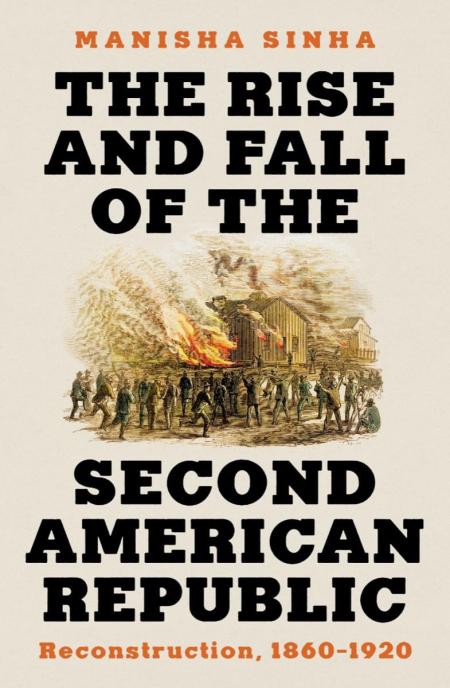
American Antiquarian Society
185 Salisbury Street
Worcester, MA 01609
United States
in conversation with John Stauffer
Acclaimed historian Manisha Sinha launches her new book, The Rise and Fall of the Second American Republic: Reconstruction in this hybrid program. A groundbreaking, expansive new account of Reconstruction, Sinha's research fundamentally alters our view of this formative period in American history.
We are told that the present moment bears a strong resemblance to Reconstruction, the era after the Civil War when the victorious North attempted to create an interracial democracy in the unrepentant South. That effort failed—and that failure serves as a warning today about violent backlash to the mere idea of black equality.
Sinha will expand our view beyond the accepted notions of Reconstruction, which is customarily said to have begun in 1865 with the end of the war, and to have come to a close when the “corrupt bargain” of 1877 put Rutherford B. Hayes in the White House in exchange for the fall of the last southern Reconstruction state governments. Sinha’s startlingly original account opens in 1860 with the election of Abraham Lincoln that triggered the secession of the Deep South states and take us all the way to 1920 and the ratification of the Nineteenth Amendment, which granted women the right to vote—and which Sinha calls the “last Reconstruction amendment.”
A sweeping narrative that remakes our understanding of perhaps the most consequential period in American history, The Rise and Fall of the Second American Republic shows how the great contest of that age is also the great contest of our age—and serves as a necessary reminder of how young and fragile our democracy truly is.

Manisha Sinha is the Draper Chair in American History at the University of Connecticut. A historian of the long nineteenth century, her research interests lie specifically in the transnational histories of slavery, abolition, and feminism and the history and legacy of the Civil War and Reconstruction. She received her Ph.D. from Columbia University, where her dissertation was nominated for the Bancroft Prize. Sinha taught at the University of Massachusetts for over twenty years, where she was awarded the Chancellor’s Medal, the highest honor bestowed on faculty. She is the author of The Counterrevolution of Slavery: Politics and Ideology in Antebellum South Carolina (University of North Carolina Press, 2000), which was named one of the ten best books on slavery in Politico in 2015 and featured in the New York Times 1619 Project. Her multiple award winning second monograph The Slave’s Cause: A History of Abolition was long listed for the National Book Award for Non Fiction. It was named Editor’s Choice in The New York Times Book Review, book of the week by Times Higher Education to coincide with its UK publication, and one of three great History books of 2016 in Bloomberg News. She was elected to AAS membership in October 2006 and was the Mellon Distinguished Scholar in Residence in 2020.

John Stauffer is the Kates Professor of English and African and African American Studies at Harvard University. He is the author or editor of 20 books and over 100 articles, including The Black Hearts of Men, co-winner of the Frederick Douglass Book Prize; GIANTS: The Parallel Lives of Frederick Douglass and Abraham Lincoln, a national bestseller; The Battle Hymn of the Republic; The Problem of Evil; and Picturing Frederick Douglass. His essays and reviews have appeared in Time, Wall Street Journal, New York Times, Washington Post, and in exhibition catalogs, journals, and books.